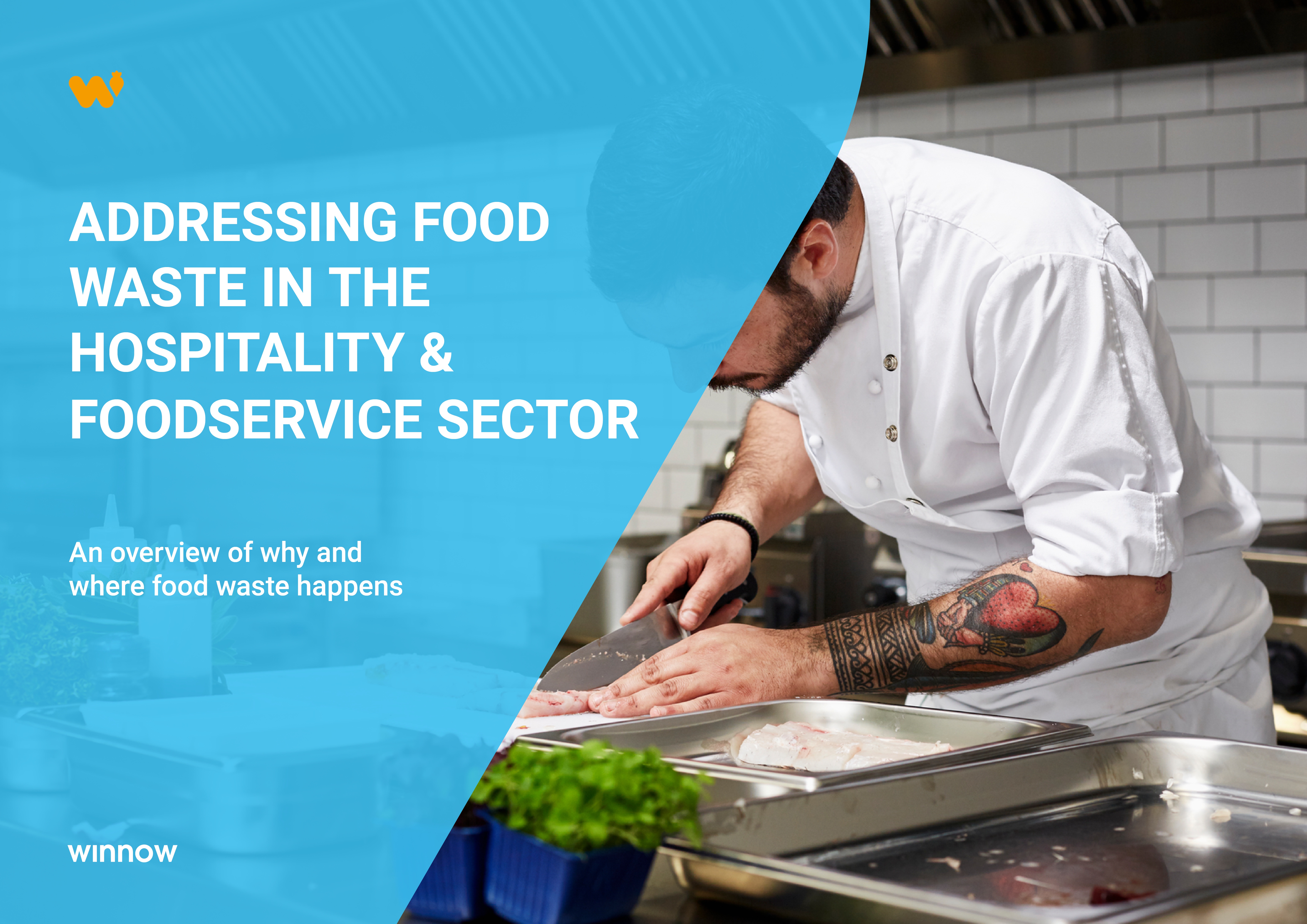Hospitality and foodservice businesses are facing challenges on all sides as food prices surge, energy costs soar, and the labour shortages both increase wage bills and put pressure on topline as operators struggle to keep their doors open. One might consider sustainability initiatives a 'nice-to-have' to face such significant headwinds.
However, with benefits to both the top and bottom line, prioritising food waste management should be a top priority for almost every kitchen in the current climate. This blog explores the top four reasons and how addressing food waste does the right thing for both planet and profit.
1. Food waste management counters spiralling operating costs.
Internationally inflationary pressures are creating a challenging environment for hospitality businesses. At the time of writing, the U.K. is experiencing its highest inflation rate in 30 years, whilst the U.S. Bureau of Labour Statistics reported a 40 year high at 7.5% vs 2021.
The Caterer reported that in the U.K., hospitality businesses reported an average rise of 41% in energy bills, 19% in labour costs, 17% in food prices, 14% for drinks, and 21% for insurance.
The Meetings Industry Association reported that “Ninety percent of venues have reported increased operational costs, with over half highlighting ‘substantial increases.” This includes rises as high as 10 percent in food and beverage, energy, salary, and recruitment costs, with most forecasting further increases over the next quarter,”
This puts pressure on operators to pass on rising costs to consumers, who are also being hit hard by rising prices. Skift predicts that global hotel rates could increase at four times the inflation rate in 2022.
As the costs add up, ensuring kitchens are run with ruthless efficiency becomes key. Winnow data shows that upwards of 5%-15% (and in some cases up to 20%) of food is thrown away in commercial kitchens. Within the context of spiralling, costs operating at this level becomes unsustainable in the long term.
2. Food waste and the labour shortage
Employers in almost every industry say they’re struggling to find workers, but the situation is especially severe in the foodservice and hospitality sector. The industry as a whole is struggling to find labour. There are simply not enough people. In many areas, hotels and restaurants have completely reopened but with limited service and hour-plus wait times.
For example, in the U.K., many overseas workers left during the pandemic affecting sectors including hospitality, logistics and food processing. And new immigration rules make replacing those who left more complex.
According to a recent poll of 13,000 job seekers, more than half of U.S. hospitality workers said they wouldn’t go back to their jobs, while over a third said they aren't even considering reentering the industry. In November, 4.5 million Americans quit their jobs — and 1 million of them are restaurant and hotel workers.
Whilst food waste and labour don’t appear to be directly correlated, a study by WRAP (read the report here) found that for every £1 of food wasted, almost another £1 would be wasted in labour, energy, transport and other costs. Of this, labour was far and away the most significant additional cost associated with food waste. When labour is tight, it doesn't make sense to use that scarce resource to cook food which is destined for the bin.
3. Eco-conscious consumers and clients
We've known that consumers will vote with their wallets when it comes to brands taking a stand on sustainability issues (and penalise those who don't). Recent research from Booking.com found that 73% of consumers would be more likely to choose a hotel if it has implemented sustainability practices.
Google has also made developments in this space, recently launching 'Eco-certified', which pulls data from multiple certification agencies (such as our strategic partner EarthCheck) to help travellers make decisions based on environmental credentials and price and quality.
At the corporate level, businesses are seeking to embed sustainability into their procurement decisions. More than 2,000 businesses have set emission reduction targets in line with climate science (SBTi), and post COP-26, all large corporations will be looking to reduce their carbon emissions in line with Net Zero plans.
One area that hotels, conference centres and contract caterers and others selling B2B should consider is that taking a proactive stance on sustainability is no longer optional. In a piece of research conducted by Deloitte, 93% of procurement organisations recognise sustainable procurement as a critical objective for their business.
Food waste is an important global issue gaining traction in the climate conversation. Up to 10% of global greenhouse gases stem from food waste, and a landmass the size of China is needed to grow food that is never eaten. Adopting technology to minimise food waste presents an opportunity to differentiate from the competition and attract eco-conscious clientele.
4. Plate waste presents an opportunity to connect with the customer.
In a larger kitchen such as a staff restaurant or resort, around 30% of the food wasted by value will come from customers' plates. When we think of food waste management customer satisfaction probably isn't top of the list of benefits. However, if we can get a handle on what our customers don't like, we can give them a better experience leading to increased customer satisfaction and repeat purchases.
In 2021 Winnow launched Winnow Sense, a touchless measurement solution for kitchens wanting to get a handle on their plate waste. The system automatically takes a picture of what's left on each plate, building a dataset for a Winnow analyst to perform an audit with. Armed with this insight, operators can adjust menus and engineer plate waste while simultaneously cutting costs and delighting customers.
In summary, prioritising food waste management can help improve the top and bottom line of a kitchen. Regardless of a businesses' position on sustainability, it makes economic sense to maximise returns by minimising waste. To learn more about Winnow's suite of tools, visit our solutions page.










Comment on my blog